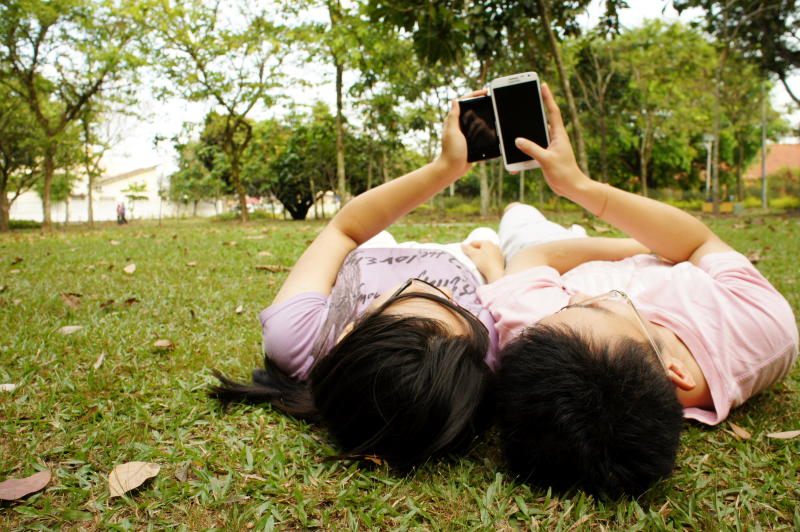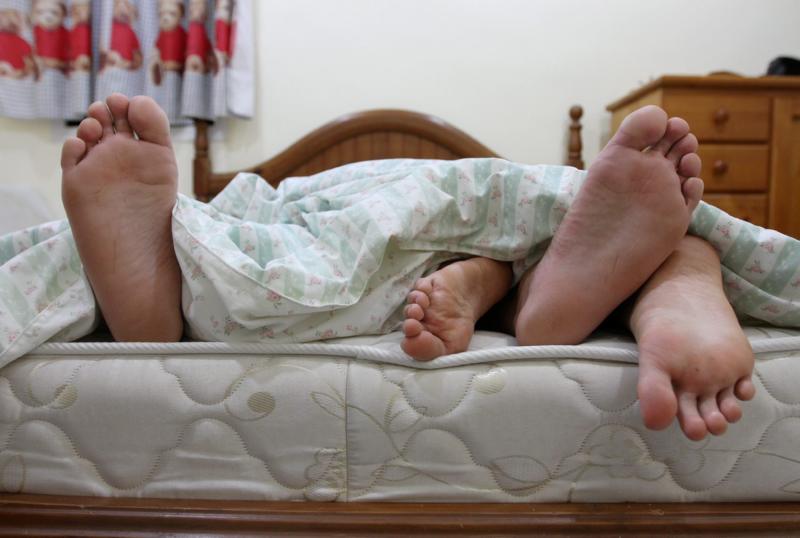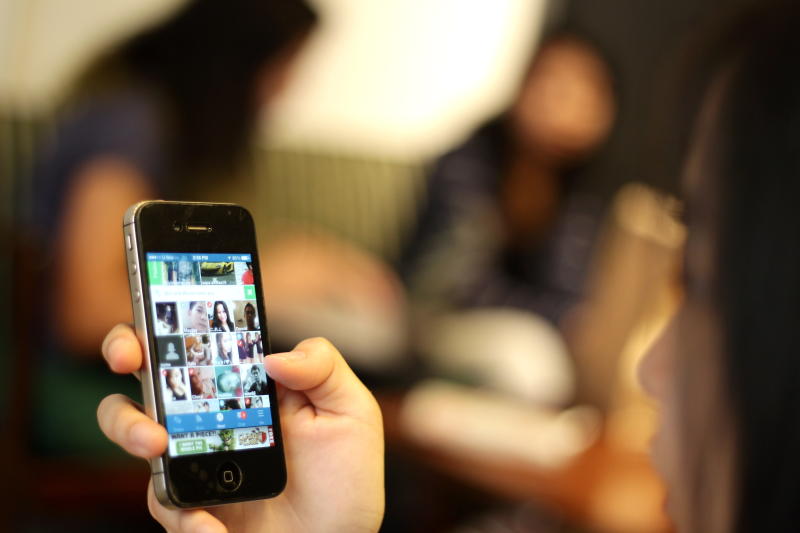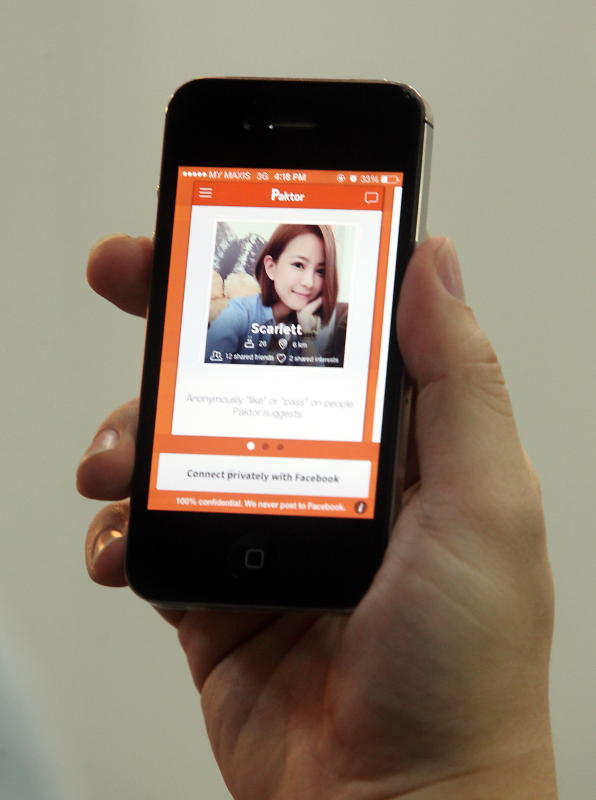By CHRISTINE CHEAH and RON J. BACKUS
alltherage@thestar.com.my
FORGET roses. Forget pick-up lines. Forget strategically hanging around a club hoping for a pull. There’s a far quicker way for young people to hook up these days, and it might just spell the death of traditional romance – or worse, create a new, unhealthy relationship paradigm for young people.
Dating apps like Tinder, Grindr, Skout, Momo and Paktor have taken the world by storm over the past year. Most of them work pretty much the same way – you post a profile of yourself on the app, and then you start liking the profiles of other users. If one of those users happens to like your profile as well, then the app will tell you you’re a match, and you can start hitting it off.
But let’s face it – for most people, these apps aren’t about getting dates. It’s really more about getting lucky.
University student Megan (not her real name), who regularly uses these apps, explains. “If these apps are just for dating, then what’s the point of the distance indicator? These apps are for people who want it quick and clean.”
It’s a legit point. Geo-location features are one of the main selling points of these apps, allowing users to find people based on how near or far they are.
But if you’re looking for the love of your life, it shouldn’t matter if he/she is halfway across town. You’d strike up an e-conversation, get to know her better over a few days, and then maybe meet up for a date. The most ostensible function of the geo-location feature is for you to find someone at the same party or the same club, so you can cut to the chase (or cut out the chase) and get straight down to business.
Sex and pizza

There are plenty of apps that make finding love much easier – not that love is on most of the users’ minds.
We met Megan and two of her friends at a pizza joint in Kuala Lumpur. All three of them use hook-up apps, and they often do it at a pizza joint (though not the one where we met) because it’s a kind of neutral zone for them – not too near their university or where they live, but still with enough young people.
“A lot of guys and girls in my college use these apps,” said Megan casually. “They’ll never tell, of course, but if you go through their phones, you’ll probably find the apps somewhere. I don’t know why everyone’s so ashamed to talk about it. There are probably thousands of us using them.”
Thousands might be an understatement, if numbers overseas are anything to go by.
British newspaper The Guardian wrote last week that Tinder added more than one million new followers in Britain alone in the past two months, and it generates over 10 million matches a day. That’s a whole lot of hook-ups.
Paktor, which was developed in Singapore, already has 120,000 users there, and it’s now also available in Malaysia, Thailand and the Philippines. The description of the app in Apple’s App Store is simple and instructive: “Meet attractive people nearby”.
Tinder co-founder Justin Mateen, however, said in an interview with The Guardian that Tinder was never meant to be a hook-up app, and that people shouldn’t assume that an app would allow you to hook up so easily either.
“You can’t just walk into a coffee shop and say ‘let’s have sex!’. The world doesn’t really work in that way,” said Mateen.
Trying out Tinder
When R.AGE fired up Tinder to detect profiles in a 5km radius around a popular college area in Petaling Jaya, the number of 20-somethings’ profiles was so high we were able to scroll through profiles continuously for over 30mins – and the profiles just kept coming.
The somewhat arbitrary nature of how you select (or reject) the profiles on these apps is a little unnerving. When the app presents you a profile, you simply swipe left on your smartphone if you don’t like what you see, and swipe right if you do. After every swipe, another profile appears, and you can just swipe away like that for hours.
Tinder and Paktor profiles are both tied to Facebook, which gives you a bit of security, because users can’t just simply create fake profiles. They still could, but it probably wouldn’t be worth the hassle of creating a whole new (and believable) Facebook profile.
In any case, the profiles are brief – your Facebook profile photo, your age, your gender and one short line about yourself.
“It’s casual and simple enough. I don’t need to read their full biography!” said Megan with a laugh.
Nevertheless, the BBC reported earlier this month that the National Society for the Prevention of Cruelty to Children in Britain recorded a rise in teenagers calling their helpline after bad experiences using hook-up apps.
When asked about how safe he felt the whole hook-up app culture is, Dave, one of Megan’s friends at the pizza place, replied casually: “Most of the girls I hook up with insist on using condoms, so I don’t see why people would cry foul over what we do. If we all take precautions, then what’s the problem?”
Others like Freddy, a 28-year-old engineer who has been using hook-up apps for two years now, believe young Malaysians have been turning to these apps because of the public’s negative perception of casual sex.
“The level of acceptance in Malaysia is still not at that level where people, especially females, can openly say they want sex,” he said.

With dating or hook-up apps, it’s all about instant gratification. The double-blind matching system allows users to hook-up fast and without having to fear rejection, but one psychologist says it’s not a good habit.
Fast love
While those using the apps argue that it saves time and cuts out a lot of BS, consultant clinical psychologist and Monash University senior lecturer Paul Jambunathan warned that there could be long-term effects to this obsession with instant gratification.
“Young people today expect everything to be immediate – even when it comes to relationships and physical intimacy,” he said.
“They grow up with laptops, tablets and smartphones. They hardly make time to meet people, so they end up having going to the virtual world to form relationships.”
But the problem with that is in the long run, your social skills could be affected, which is something Paul is already noticing among his young patients.
“It’s like driving. If you have an urge to drive fast, and you don’t do anything to curb it, it becomes a habit. And there are consequences. You will end up crashing,” he added.

Apps like Skout allow users to create profiles that aren’t linked to Facebook, which means they can create fake profiles much easier.
Faking it
Being a young working adult living in the Klang Valley, my smartphone has always been a good companion to me.
Instant messaging keeps the loneliness away, and there are plenty of apps to keep me entertained.
But now, it seems smartphones are also being used by some people to get an ONS (the Internet acronym for “one night stand”).
To satisfy my journalistic curiosity, I downloaded a few popular hook-up apps – Tinder, Skout, Momo, Miumeet and Grindr – for a little experiment.
I asked around for “hot spots” where I could try out the apps’ geo-social capabilities. Pavilion KL and The Curve, Petaling Jaya are good locations, apparently. I opted for the latter.
I station myself at a cafe, and almost immediately after uploading my profile, receive eight messages. One of them turned out to be a married man.
I told him I was new to the game, and he replied that the app I was using was actually for people seeking one-night stands. For him, all he looks for is someone with whom he can eat, chat and “play”. Considering the app we were using could be downloaded by anyone above 17, it all felt a bit wrong – and potentially dangerous.
In most of the conversations I had that afternoon, the guy would ask me if I wanted to meet up for a drink; though hints of sexual intent were never far away. It was pretty unnerving to think that all these men were no more than 400m away from me.
Naturally, I turned down the requests, and told them I was a journalist just trying the apps out for a story. All of them stopped replying.
But not all the apps were about hooking up. On one hand, there were certain ones that were filled with escort services, but on the other, there were some where you could just find someone like-minded to chat with.
Skout was recommended by a friend who said it was one of the better ones. I found about 15 fellow users around me with just one glance at the screen.
It had a “Shake to chat” feature. You shake your phone, and it connects you to another user shaking the phone at the same time in any part of the world. Your profile will remain anonymous to the other person for the first 40 seconds, so you get to leave without revealing any personal info if that person freaks you out.
On my first try, I was put in a conversation with a guy from Tokyo, Japan. He wasn’t fluent in English, but he still tried to chat. He was just bored and looking for someone to talk to.
Incidentally, the people behind Tinder – probably the most popular app of the lot – have been trying very hard to tell everyone that the app was not made for hook-ups. It was meant as a social tool, for people to expand their social circles.


Tell us what you think!